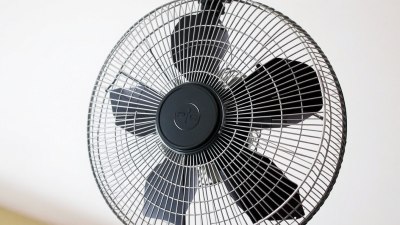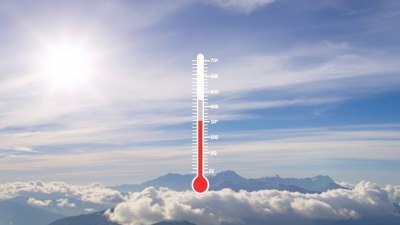Why Your Brain Acts Weird When the Weather Gets Hot
Explore the surprising effects of hot weather on your brain, mood, and behavior, and learn how to manage these changes effectively.

Image created with Flux Schnell
As temperatures soar during hot weather, many people notice changes in their mood, cognitive function, and overall behavior that seem unusual or 'weird.' But why exactly does your brain act differently when the weather gets hot? This phenomenon is rooted in complex physiological and psychological responses to heat exposure. Understanding these mechanisms can help you better cope with heatwaves and maintain mental clarity despite rising temperatures.
The human brain is a highly sensitive organ that functions optimally within a narrow temperature range. When the body's core temperature increases due to external heat, it triggers a cascade of biological reactions affecting how the brain operates. One major factor is the body's effort to regulate its internal temperature, which involves processes that can divert energy and resources from normal brain functions.
Impact of Heat on Neurotransmitters and Brain Chemistry
Neurotransmitters—the chemical messengers that facilitate communication between neurons—are significantly influenced by heat. Elevated temperatures can alter the balance of neurotransmitters such as serotonin, dopamine, and norepinephrine, which play key roles in mood regulation, cognition, and alertness.
For instance, serotonin helps modulate mood and anxiety levels. When heat disrupts serotonin levels, individuals might experience irritability or heightened stress. Similarly, dopamine, which affects motivation and pleasure, can be suppressed by heat, resulting in decreased motivation or feelings of lethargy. This imbalance can explain why some people feel 'off' or less energetic on hot days.
Norepinephrine, involved in attention and response to stress, may also increase in response to heat. While this can heighten alertness temporarily, overexposure can lead to feelings of tension or restlessness. Such neurochemical shifts contribute to the behavioral and emotional changes associated with hot weather.
Dehydration and Cognitive Decline
Another critical factor is dehydration. Heat increases sweating and fluid loss, which, if not compensated by adequate water intake, leads to dehydration. Dehydration directly impacts brain function by reducing blood volume, which can decrease oxygen and nutrient delivery to brain tissue.
Studies have shown that dehydration impairs short-term memory, attention, and psychomotor skills. Even mild dehydration can cause difficulties concentrating, increased fatigue, and slower reaction times. This contributes to the fuzzy-headed or ‘weird’ brain feeling many experience during hot weather.
Moreover, dehydration affects electrolyte balance, disrupting nerve function. Key electrolytes such as sodium, potassium, and calcium are essential for neuron firing and communication. Imbalances can result in confusion, headaches, or even mood swings, amplifying the cognitive challenges posed by heat.
Effects on Sleep and Circadian Rhythms
Heat also interferes with sleep quality, another source of cognitive and emotional disruption. High nighttime temperatures make it difficult to fall asleep and stay asleep, reducing the overall amount of deep restorative sleep. Sleep deprivation intensifies the brain's vulnerability to stress and impairs memory consolidation, mood stability, and executive function.
The brain's internal clock, or circadian rhythm, can be thrown off by heat, exacerbating these issues. Poor sleep combined with heat-induced circadian disturbances can make the brain less efficient at processing information and regulating emotions, contributing to feelings of confusion, irritability, or mental sluggishness during hot days.
Heat Stress and Inflammation in the Brain
Prolonged exposure to excessive heat can induce a condition known as heat stress, where the body's ability to dissipate heat is overwhelmed. Heat stress triggers inflammatory responses, increasing the production of pro-inflammatory cytokines in the brain. This neuroinflammation can impair neural circuits involved in mood and cognition.
Neuroinflammation is linked to symptoms such as brain fog, difficulty concentrating, and mood disturbances, which are commonly reported during heatwaves. Vulnerable populations, including the elderly and individuals with pre-existing neurological conditions, are particularly susceptible to these effects.
Psychological and Social Factors
The brain’s reaction to heat is not purely physiological. Psychological and social factors also play critical roles in how hot weather influences behavior. Heat can increase general discomfort, reduce motivation to engage in activities, and enhance feelings of aggression or impatience. These responses are partly rooted in discomfort and partly in perceived stress caused by environmental challenges.
Social settings can amplify these effects. Crowded, hot environments may heighten irritability and interpersonal conflicts. The brain’s stress response systems become more active, elevating cortisol levels and prompting a fight-or-flight response even to minor provocations.
Strategies to Protect Your Brain During Hot Weather
Understanding why your brain acts weird when the weather gets hot enables you to take practical steps to mitigate these effects. Staying well-hydrated is paramount. Drinking plenty of water maintains blood volume and electrolyte balance essential for brain function.
Cooling strategies such as air conditioning, fans, or spending time in shaded or cooler environments reduce core temperature and the burden on the brain. Wearing loose, breathable clothing helps minimize body heat retention. Avoiding strenuous physical activity during peak heat hours also preserves cognitive resources.
Maintaining good sleep hygiene despite heat is crucial. Using cooling bedding, keeping rooms well-ventilated, and taking cool showers before bed can improve sleep quality. Managing stress via relaxation techniques counteracts heat-related irritability and mood swings.
When to Seek Medical Help
While mild cognitive and mood changes in hot weather are common, more severe symptoms may indicate heat-related illness such as heat exhaustion or heat stroke. Signs include confusion, dizziness, severe headaches, nausea, and muscle weakness. These conditions require prompt medical attention because they can cause lasting brain damage.
If you or someone you know exhibits these symptoms during a heatwave, it’s essential to cool down immediately and get professional care. Preventing heat-related brain injuries relies on early recognition and response.
Broader Implications for Climate Change
As global temperatures rise due to climate change, the frequency and intensity of heatwaves are expected to increase. This has profound implications for public health, particularly brain health. Understanding how heat affects the brain is crucial for developing adaptive strategies in workplaces, schools, and healthcare settings to protect cognitive function and mental well-being.
Urban planning that incorporates green spaces and heat-mitigating infrastructure can reduce urban heat islands that exacerbate heat exposure. Public health initiatives encouraging hydration, awareness of heat-related symptoms, and community support networks will become increasingly important.
The brain acts weird when the weather gets hot because heat disrupts neurochemical balance, causes dehydration, impairs sleep, triggers inflammation, and heightens stress responses. These factors combine to alter cognition, mood, and behavior. Recognizing these changes allows individuals to take proactive measures to protect their brain health during hot weather. With rising global temperatures, addressing heat’s impact on the brain is a critical priority for individual and public health.











